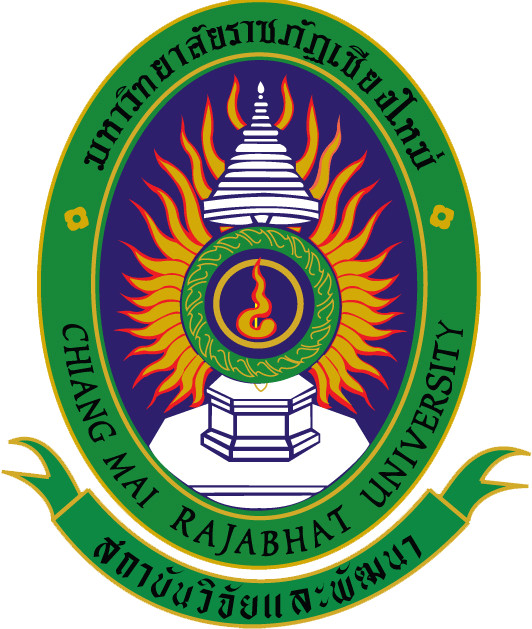
ระบบสารสนเทศงานวิจัย สถาบันวิจัยและพัฒนา มหาวิทยาลัยราชภัฏเชียงใหม่
Research Information System(RIS)
การวิเคราะห์มูลค่าเพิ่มของการวิจัยและพัฒนาศักยภาพภาคการเกษตรของชุมชน จังหวัดเชียงใหม่ ในกรอบประชาคมเศรษฐกิจอาเซียน
อาจารย์ ดร.ปรารถนา มินเสน
คณะวิทยาศาสตร์และเทคโนโลยี
คำสำคัญ :
เลขทะเบียน :
789-60-SCI-NRCT
บทคัดย่อ
การวิจัยมีวัตถุประสงค์เพื่อวิเคราะห์มูลค่าเพิ่มของการวิจัยและพัฒนาศักยภาพภาคการเกษตรของชุมชน จังหวัดเชียงใหม่ จำนวนทั้ง 10 ประเด็น ให้มีศักยภาพการแข่งขันในอาเซียนอย่างสร้างสรรค์ บนพื้นฐานปรัชญาของเศรษฐกิจพอเพียง โดยเป็นการวิจัยเชิงคุณภาพและสนับสนุนด้วยการวิเคราะห์เชิงปริมาณจากข้อมูลปฐมภูมิของกลุ่มเกษตรกรที่เข้าร่วมโครงการด้วยความสมัครใจผ่านองค์กรปกครองส่วนท้องถิ่น จำนวน 17 ตำบล 20 กลุ่มเกษตรกร ที่มีศักยภาพในการพัฒนาด้านการเกษตร เมื่อเปรียบเทียบในระดับประชาคมอาเซียน อาศัยวิธีการวิจัยแบบมี ส่วนร่วม (PAR) วิเคราะห์ศักยภาพด้วย SWOT analysis และอภิปรายผลด้วยข้อมูลสถิติ คือ ค่าเฉลี่ยในลักษณะของสถิติเชิงพรรณนา ผลการวิจัยพบว่า ศักยภาพของกลุ่มเกษตรกรในจังหวัดเชียงใหม่ยังคงมีจุดอ่อนคือ เกษตรกรยังขาดความสามารถในการผลิตสินค้าให้ได้ปริมาณที่มาก และยังขาดความสามารถในการควบคุมปริมาณ คุณภาพผลผลิตในแต่ละรอบการผลิต รวมถึงอุปสรรคที่สำคัญคือ ตลาดสินค้าเกษตรไม่มีความหลากหลาย การวิจัยจึงได้เพิ่มศักยภาพของกลุ่มผ่านกิจกรรมทั้ง 3 โครงการ คือ การอบรม “แนวปฏิบัติมาตรฐานสินค้าเกษตรปลอดภัย” การอบรม “บรรจุภัณฑ์และการพัฒนาต่อยอดสินค้าเกษตร” ในประเด็น เรื่อง เทคโนโลยีการบรรจุสำหรับสินค้าเกษตรและบรรจุภัณฑ์กับการสร้างมูลค่าเพิ่มสินค้าเกษตร และการอบรม “แนวทางการประยุกต์ใช้แอพพลิเคชั่นเพื่อการบริหารจัดการฟาร์มและการปกป้องทรัพย์สินทางปัญญาของชุมชน” และพบว่ากลุ่มเกษตรกรมีผลการประเมินศักยภาพเพิ่มขึ้นเฉลี่ยร้อยละ 9.63 ซึ่งช่วยในการพัฒนาต่อยอดให้กับกลุ่มเกษตรกรให้ได้ผลลัพธ์ 9 ด้าน ดังนี้ 1) ด้านการเพิ่มประสิทธิภาพการผลิตสินค้าเกษตรมากที่สุด ร้อยละ 25.45 2) ด้านการพัฒนาการตลาดสินค้าเกษตรของชุมชน ร้อยละ 16.36 3) ด้านการตรวจสอบและพัฒนามาตรฐานสินค้าเกษตร ร้อยละ 16.36 4) ด้านการส่งเสริมภาคการเกษตรขององค์กรภาครัฐในชุมชน ร้อยละ 10.91 5) ด้านการพัฒนาและต่อยอดสินค้าเกษตรในชุมชนสู่ระบบอาหารปลอดภัย ร้อยละ 9.09 6) ด้านการพัฒนากลุ่มธุรกิจเกษตร ด้วยปรัชญาของเศรษฐกิจพอเพียง ร้อยละ 7.27 7) ด้านการส่งเสริมการผลิตสินค้าเกษตรอินทรีย์ ร้อยละ 5.45 8) ด้านการต่อยอดภาคการเกษตรของชุมชนให้เกิดประโยชน์เชิงพาณิชย์และสาธารณะ ร้อยละ 5.45 และ 9) ด้านการพัฒนาระบบเศรษฐกิจการเกษตรของชุมชนอย่างสร้างสรรค์ ร้อยละ 3.64 จึงควรให้เกษตรกรเร่งพัฒนาประสิทธิภาพการผลิตของกลุ่มเป็นลำดับแรก ซึ่งจะสามารถแข่งขันในประชาคมอาเซียนได้
Abstract
This study aims to analyze value added of research and develop the potentialities of agriculture of Chiang Mai communities to compete in ASEAN base on sufficiency economy philosophy. It was the qualitative research and supported by quantitative research from the primary data of 20 groups of agriculturists from 17 districts attending the project. All of these groups had potentialities to develop the agricultural products. Participatory action research, SWOT analysis and discussed the result by descriptive statistic such as means The research found that the weaknesses of agriculturists’ potentialities were that they lacked ability to produce a lot of products and controlled the quantity of productivity in each production cycle. Their threats were that markets had varieties. As a result, training of people were held to increase the potentialities of all these groups; the first training was guideline for the standard of agriculture of safety products; the second training was packaging and development to expand agricultural products on the topic of package technology for agricultural product and packaging for creating agricultural value added and the third training was guideline to apply application for farm management and production of commercial intellectual property. Groups of agriculturists’ potentialities had been 9.63% increased . Thus it could help to expand their operation and got 9 issues of the outcomes as follow; 1) increase the efficiency of agricultural products 25.45% was the highest of increase 2) develop the marketing of agricultural products for community 16.36%; 3) inspect and develop standard of agricultural products; 4) promote agriculture of governmental organizations in communities 10.91%; 5) develop and expand agricultural products to be food safety 9.09%; 6) develop agricultural business groups base on sufficiency economy philosophy5.45%; 7) promote organic agricultural production 5.45%; 8) expand agriculture of communities for commercial and public advantages 5.45% and 9) develop agricultural economic system of communities creatively 3.64%. As a result , agriculturists should accelerate to develop the efficiency of production as the first priority to compete in ASEAN community.
ไฟล์งานวิจัย
อยู่ในระหว่างการปรับปรุงเนื้อหาข้อมูลการตีพิมพ์
ชื่อบทความ :
แหล่งที่ตีพิมพ์ :วารสารพัฒนาชุมชนและคุณภาพชีวิต เครือข่ายบริหารการวิจัย มหาวิทยาลัยเชียงใหม่ ปีที่ 7 ฉบับที่ 1 มกราคม - เมษายน2562
ปีที่ตีพิมพ์ :2562
284 23 ส.ค. 2561
สำนักงานคณะกรรมการวิจัยแห่งชาติ (วช.)
196 Paholyotin Rd., Chatuchak, Bangkok 10900
0-2561-2445